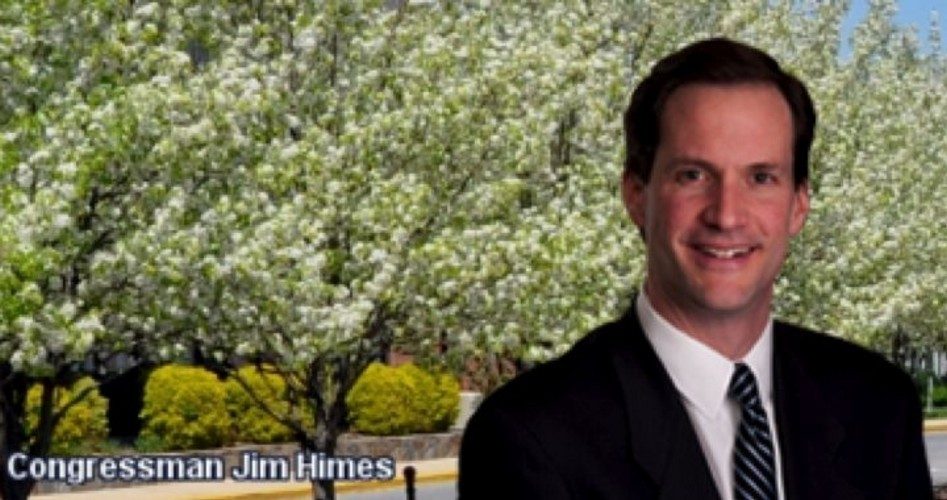
Representative James Himes (D-Conn.), shown, tweeted on Sunday night that Donald Trump is “completely unhinged” and that the Electoral College “must do what it was designed for”: vote for Hillary.
The following day CNN’s New Day interviewed the Connecticut congressman and asked him about his tweet. He responded: “What finally pushed me over the edge was when the president-elect of the United States criticized the CIA and the intelligence community.” He urged the Electoral College, which meets on Monday, December 19, to vote for Clinton, even though such a vote would result in “an awful lot of litigation.”
And then the congressman unburdened himself of his understanding as to why the Founders provided for an Electoral College in Article II of the Constitution and pushed for its subsequent modification by the 12th Amendment, which was ratified on June 15, 1804:
The Electoral College, if you read the Federalist Papers and understand why it is there, it is a group of people. It is not an algorithm. It is not a set of ballots. It is a group of people that our Founding Fathers, you know, to whom supposedly we all sort of defer to, pledged the idea that if someone gets elected that [sic] is manifestly ill equipped to be president … that the Electoral College can step in.
As Alfred Lord Tennyson famously said, “A lie which is half a truth is ever the blackest of lies.” Himes grasps just half the truth about the Electoral College, and the weakest half at that. The primary reason for the Electoral College was well put by Joe Miller, writing at FactCheck.org, a project of the Annenberg Public Policy Center:
The number of electors in each state is the sum of its U.S. Senators and its U.S. Representatives….
The reason that the Constitution calls for this extra layer, rather than just providing for the direct election of the president, is that most of the nation’s founders were actually rather afraid of democracy.
Alexis de Tocqueville called democracy “the tyranny of the majority” — one of James Madison’s fears over the direct election of the president. A “faction,” wrote Madison, could “sacrifice to its ruling passion … both the public good and the rights of other citizens.”
A better solution, instead of direct election of the president, wrote Madison, is “a republic, by which I mean a government in which the scheme of representation takes place, [which] opens a different prospect and promises the cure for which we are seeking.”
The electors, selected by each state, wrote Alexander Hamilton, would ensure “that the office of President will never fall to the lot of any man [or woman] who is not in an eminent degree endowed with the requisite qualifications.”
It’s the College, first, that balances the interests of smaller states against more populous ones, and then, second, that allows the electors to select the best individual for the job.
In his declamation about the Electoral College, Himes does a great disservice to the Constitution (which he pledged in his inaugural oath to uphold and defend) and to himself as well. He ignores the advice and counsel of those Founders “whom supposedly we all sort of defer to” and moves instead to replace the College with direct election. At least Himes is consistent, as his voting record as a member of the House of Representatives also shows an extraordinary lack of understanding of the purposes of the Constitution: to “bind” people such as Himes “down from mischief by the chains of the Constitution,” as Jefferson said so well so long ago. Himes sports a Freedom Index rating, based on his voting record on constitutional issues, of just 10 out of a possible 100.
An Ivy League graduate and former investment advisor, Bob is a regular contributor to The New American magazine and blogs frequently at LightFromTheRight.com, primarily on economics and politics. He can be reached at [email protected].



